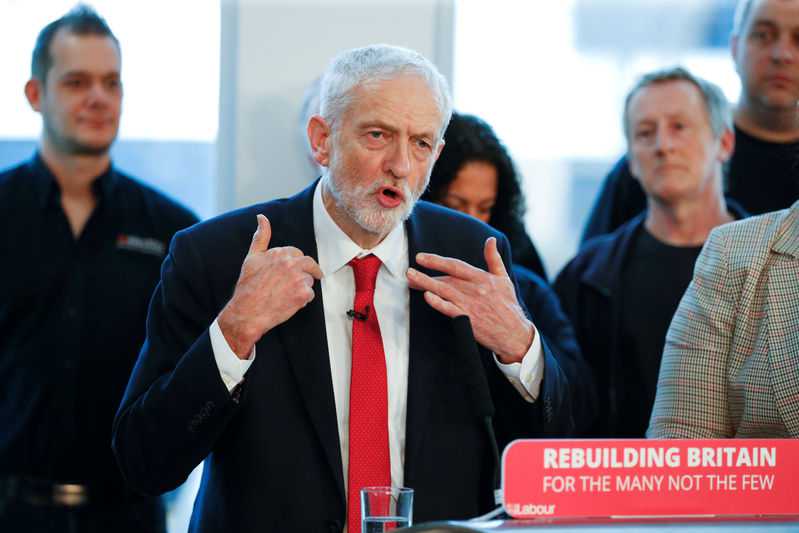U.K. opposition leader calls for general election
12 January, 2019

British Labour leader Jeremy Corbyn called on lawmakers on Thursday to help his opposition party “break the deadlock” over Brexit and support his call for a motion of no confidence in the government to trigger an election.
Pledging to vote against British Prime Minister Theresa May’s deal next week, Corbyn said only a Labour government could secure an accord with the European Union that would reunite Britain, a move that would, he acknowledged, most probably require an extension of the Brexit talks with Brussels.
Parliament is deadlocked over how to proceed with Brexit, Britain’s biggest shift in foreign and trade policy in more than 40 years, and is expected to vote against May’s deal on Tuesday plunging the departure from the EU into deeper uncertainty.
With less than three months before Britain leaves the EU, May has warned lawmakers if they do vote down her deal, they would be opening the way for a disorderly exit or for Brexit not to happen at all.
Corbyn said if May had confidence in her deal, she should “call that election and let the people decide.”
“If the government cannot pass its most important legislation then there must be a general election at the earliest opportunity,” he told journalists and workers in the northern English city of Wakefield.
“Clearly, Labour does not have enough MPs in Parliament to win a confidence vote on its own. So members across the House [of Commons] should vote with us to break the deadlock,” he said, adding Labour would call a vote of no confidence when it had the greatest chance of success.
‘Against the clock’
He said only an election would give the winning party “a renewed mandate to negotiate a better deal” that could pass through Parliament, adding an election and renegotiation would most probably mean an extension to Article 50, which began Britain’s divorce proceedings in March 2017.
Any extension would require the agreement of the other 27 EU member states.
“Moving into office at a period right up against the clock, there would need to be time for that negotiation,” Corbyn said. “An extension would be a possibility, because clearly there has to be time to negotiate.”
Outright victory for either party in an election is far from certain, and some Labour lawmakers have cautioned against holding another vote at a time when Brexit passions are rising and the country remains deeply divided.
A survey by pollster YouGov in late December and early January showed Labour six points behind the Conservatives after the two parties have been almost neck-and-neck for weeks.
